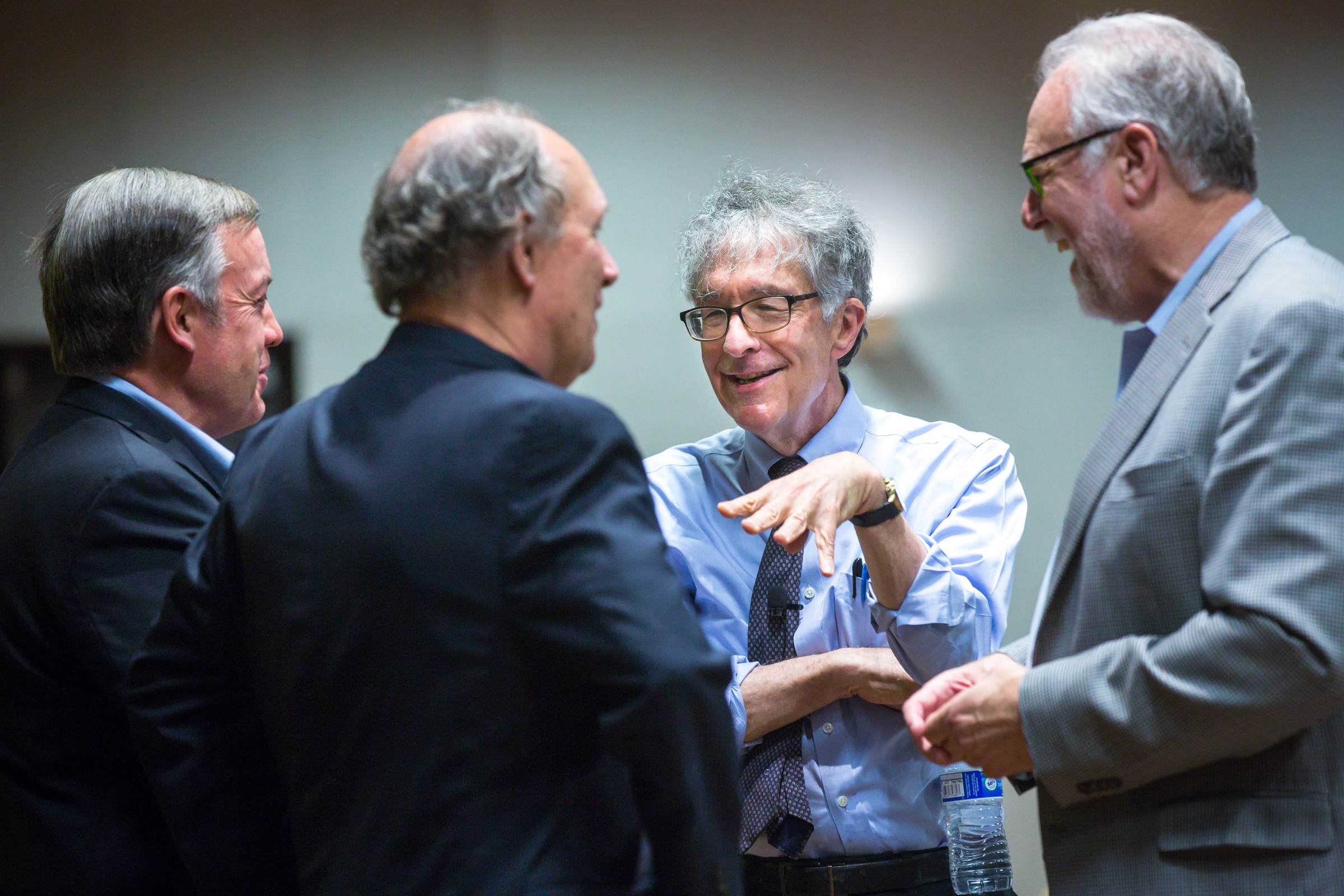More than one kind of smart
Harvard professor Howard Gardner discusses his groundbreaking theory of multiple intelligences, hails ASU's approach
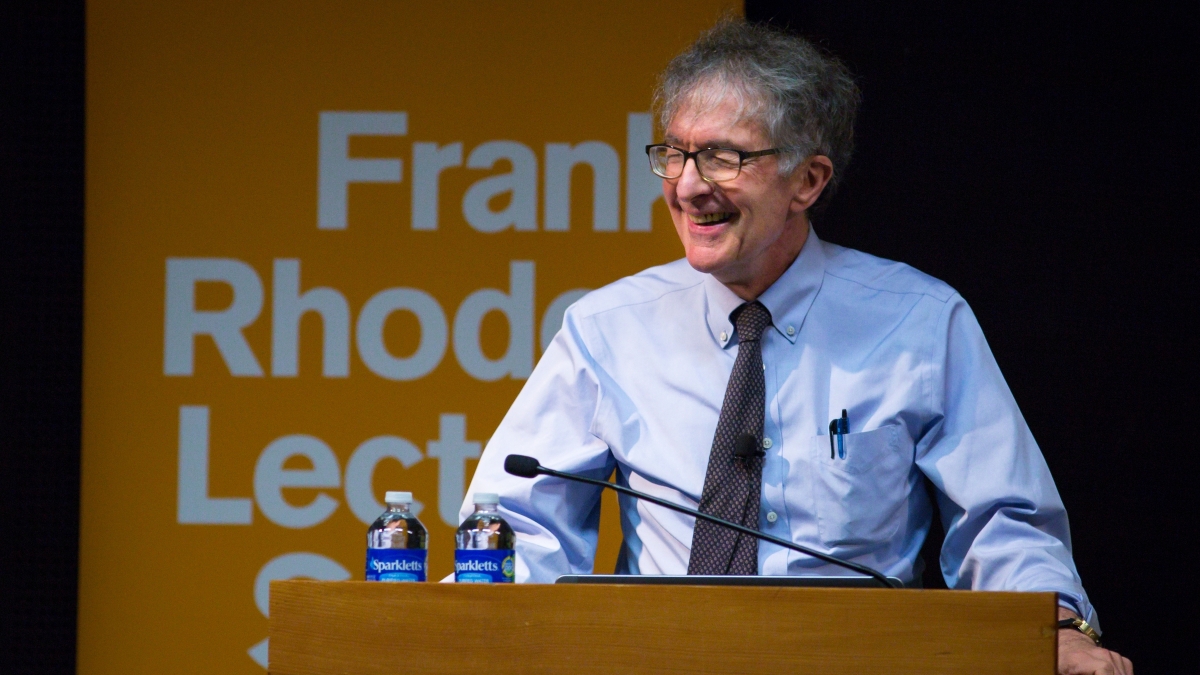
Every person in the world is gifted with a complex interaction of several kinds of intelligence, and universities must recognize that each student is unique, according to Howard Gardner, who developed the groundbreaking theory of multiple intelligences.
Gardner discussed his pioneering research on Tuesday at Arizona State University, which is working to broaden access to people with different types of intelligence.
“I think what you’re doing here in supporting intellectual fusion is a shrewd and justifiable move,” Gardner said.
“Not only are so many problems much bigger than one discipline, but in the contemporary age, we need more people who can move easily from one mental territory to another.”
Gardner is the John H. and Elisabeth A. Hobbs Professor of Cognition and EducationHe also is senior director of Harvard Project Zero, which improves education in the arts. at the Harvard Graduate School of Education.
His talk, titled “Beyond Wit and Grit,” was part of ASU’s Frank Rhodes Lecture Series on the Creation of the Future.
Gardner said that traditionally, people were considered to have one type of general intelligence, which could be measured with an IQ test. In the early 1980s, he and researchers from other disciplines looked at evolution, biology, human development and other cultures, and he began to distill his theory of multiple intelligences.
“Instead of having a single computer in our skulls, we have a bunch of different ones,” Gardner said.
The eight intelligences are spatial, bodily-kinesthetic, musical, linguistic, logical-mathematical, interpersonal, intrapersonal (knowing yourself) and naturalistic (the ability to make distinctions in the world of nature).
“Life isn’t fair. Some people have a bunch of great computers,” said Gardner, who has won a MacArthur “Genius Grant.”
Professor Howard Gardner of the Harvard Graduate School of Education speaks with President Michael Crow (left), psychology professor Keith Crnic (center) and Provost Mark Searle (right) and others before speaking to an audience of more than 300 Ma 3 in Tempe. Photos by Charlie Leight/ASU Now
Gardner said that it’s crucial to understand that all people have all of these intelligences, to varying degrees, and that everyone, even identical twins, has a unique intelligence profile.
The theory has two important applications to education: Learning should be individualized, because everyone learns differently, and teaching should be pluralized, meaning that important concepts must be taught several different ways.
“Now in the digital era, individualization is much more possible,” he said, noting ASU’s dedication to online education.
ASU President Michael Crow introduced Gardner and said that his theory has been transformative.
“He’s one of those scholars who focuses on a topic that we intuitively understand,” Crow said. “We understand that people are not the same.
“But so much of our modern education enterprise doesn’t recognize that uniqueness. It wants to channel us.”
Crow said that ASU is working toward the notion that there is not one path or one model.
“What we have to do is create a teaching and learning and discovery institution that recognizes this individuality,” he said.
Gardner said that “grit” — persevering through adversity — has become a hot topic in education, but he realized that it takes more than intelligence or “grit” to be a good person. He showed a photograph of German storm troopers saluting Hitler.
“They had plenty of grit,” he said.
In 1993, he was disturbed to discover that someone in Australia had taken his theory and listed different races and ethnicities along with corresponding intelligences that each had or lacked.
“I realized that if I didn’t take responsibilities for how my ideas were used, I couldn’t expect anyone else to, either. The past 22 years, I’ve been working on ‘the goods’ — what does it means to use your wit and grit to the service of good ends,” he said.
Gardner is co-director of the Good Project, which researches ethics, citizenship and digital life.
“It doesn’t help to be the smartest guys in the room or the best and the brightest in an ironic sense,” he said.
“What matters is you use this ‘wit and grit’ to become a good person, a good worker and a good citizen.”
More Arts, humanities and education
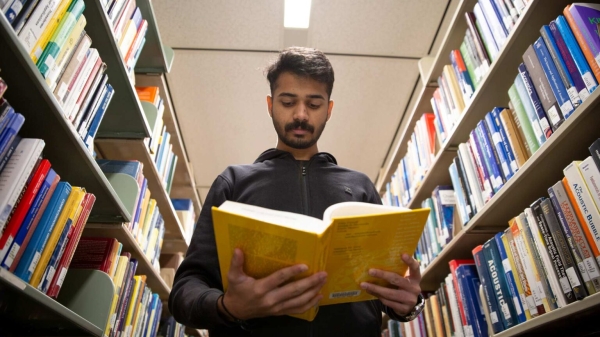
Engineering knowledge: Recommended reading from Fulton Schools faculty, staff
In this 13th edition of the annual Essential Reading feature, 10 more faculty and staff members in the Ira A. Fulton Schools of Engineering at Arizona State University join in carrying on the…
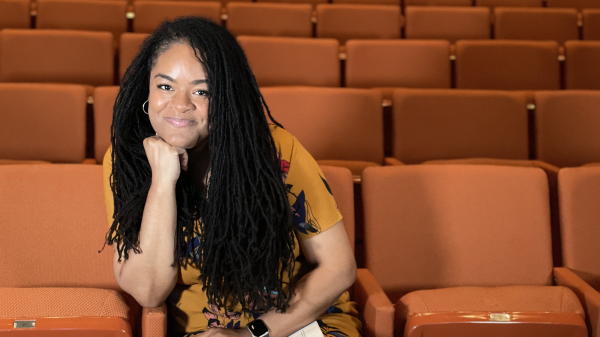
ASU Gammage Scholar and MFA student forges path to her future
Editor’s note: This story is part of a series of profiles of notable spring 2024 graduates. Theater was an escape and an outlet for Crestcencia Ortiz-Barnett as a young girl in Detroit. “I learned…
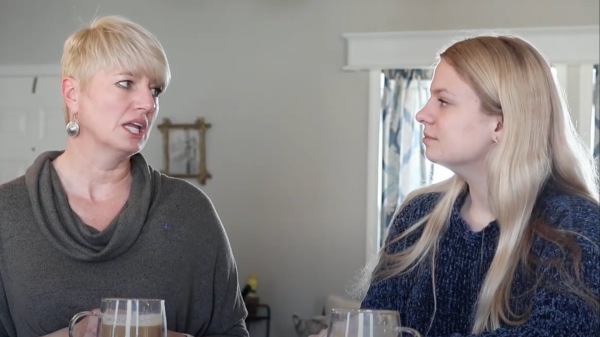
Data science student investigates Arizona education system, reform through Steve Jobs Archive fellowship
Arizona State University student Brinlee Kidd was one of nine people across the U.S. chosen for the inaugural Steve Jobs Archive (SJA) Fellowship, launched last year with the goal of allowing young…
